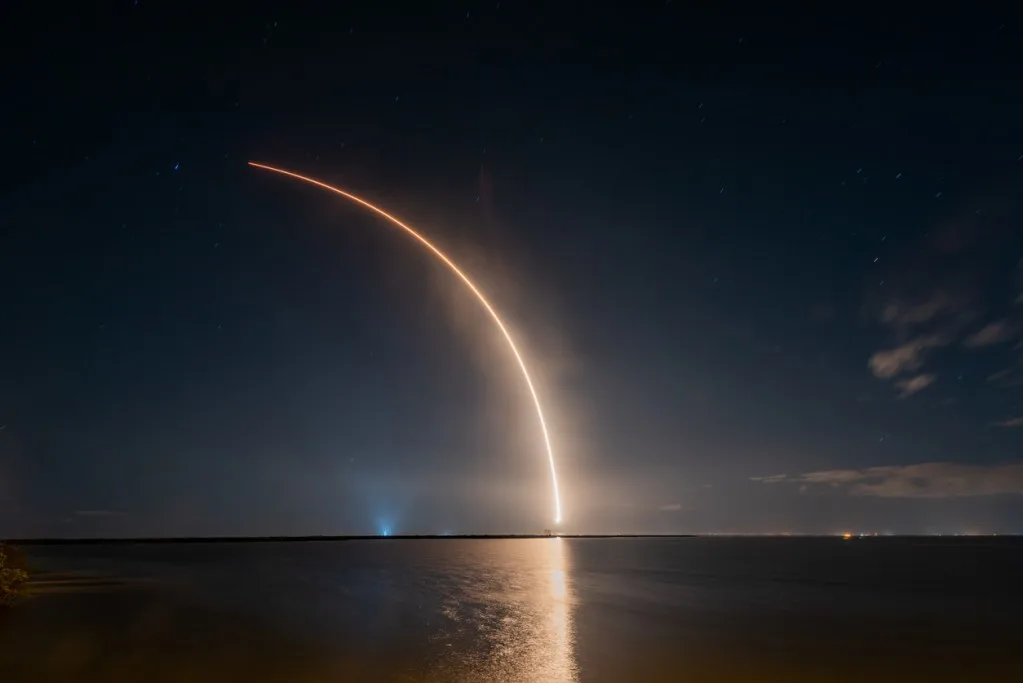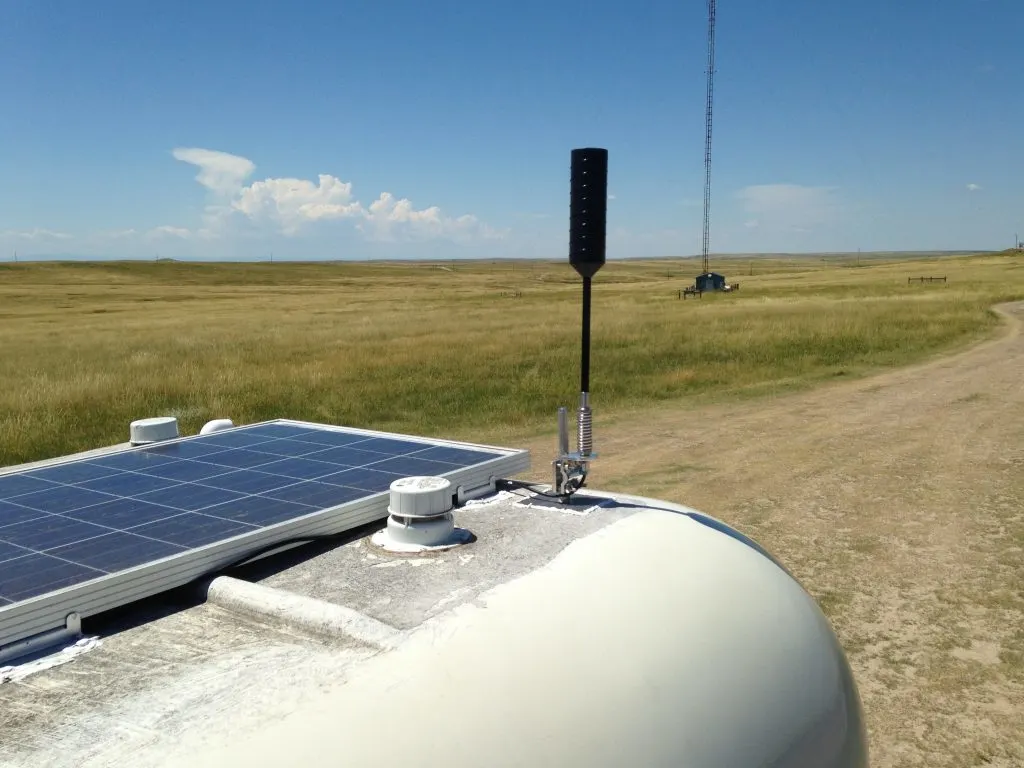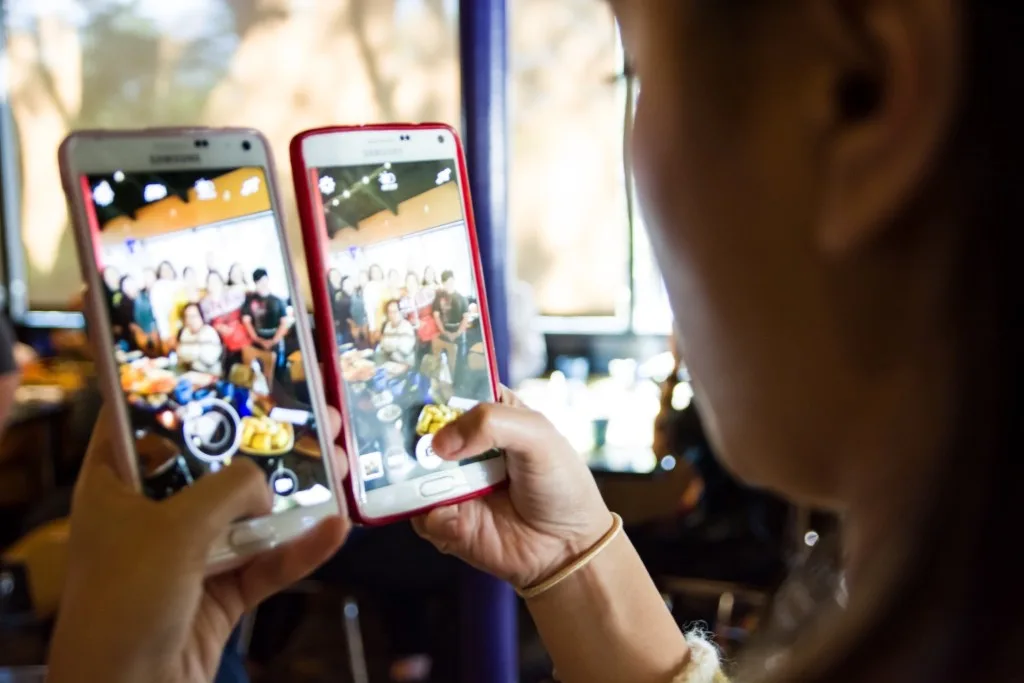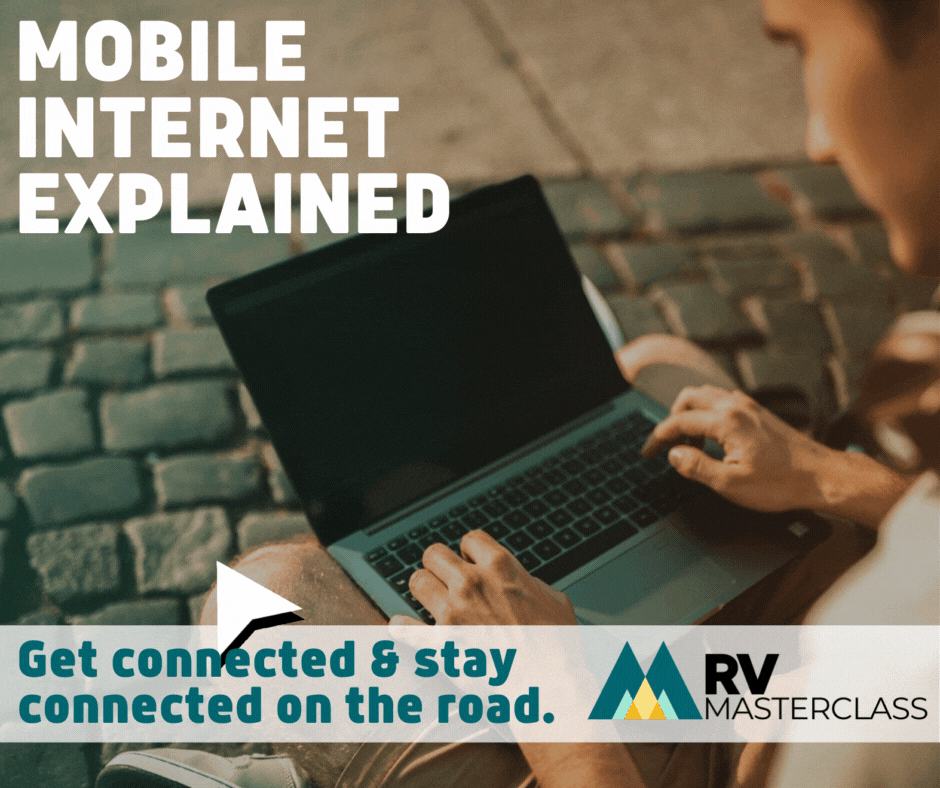5 Easy RV Internet Hacks
RV travelers can struggle with finding fast, reliable access to the web. So, we’ve assembled our five favorite RV internet hacks.
These days, many of us are using the Internet more than ever for work, streaming, and connected devices. And sadly, it can be challenging for RV internet to keep up.
But don’t log off just yet.
A few simple tips and technology items can go a long way in getting you online on the go.
Let’s dig in!

RV Internet Is a Complicated Subject
There are many things an RVer can actually mean when they refer to RV internet. Perhaps they’re referring to campground WiFi networks, a cellular hotspot, a satellite, or even a hardwired connection at some parks.
Every way to get internet on the road has its strengths and weaknesses. And the importance of these largely depends on your travel style and habits.
For example, an RVer who only takes their rig out to RV parks a few times a year may get away with using the campground WiFi and their phone’s hotspot.
However, a couple working full-time while traveling will likely need to invest in several items. These may include multiple cellular plans, hotspots, routers, boosters, and other equipment to ensure good access at all times.
This can sound daunting. But you can generally break down your RV internet options into a few major buckets.
Keep in Mind: We recommend taking an easy-to-understand course about mobile internet if you’re serious about RVing. Our top choice is called “Mobile Internet Explained.”

Types of Remote Internet Access
WiFi access is best for those who routinely stay at campgrounds with amenities and don’t have intensive internet needs. You’ll only have internet if your computer or external antenna is close enough to connect to the router or access point.
And in many cases, RV park WiFi is notoriously slow.
Still, this is usually the simplest way for people to connect, as they’re already familiar with the process.
Cellular internet relies on the same data networks used by your smartphone. Therefore, you’ll have internet access wherever you have a cell signal. This frees you up from camping only in RV parks and provides you a private, more stable connection.
However, at a minimum, you’ll need a cell phone that allows cellular hotspot usage. And this can be an extra cost in some cases. For heavy internet users, you may also need to invest in dedicated cellular hotspots or routers, as well as extra data plans.
You might also encounter satellite internet on occasion or parks that offer wired cable or DSL connections. These are rarer choices and generally geared toward those staying in a single location for an extended period. There are some hopes that Starlink satellite internet for RVers may one day be available, but don’t plan on it any time soon.

5 Easy RV Internet Hacks
Here are our five favorite hacks to help take your RV internet access to a new level.
#1 – Use Your Smart Phone as a Hotspot
Most smartphones these days can function as a cellular hotspot. This means your phone creates a small WiFi network that your other devices can connect to. They’ll then be able to use the cellular connection to access the Internet.
Not every cellular plan allows this, and many come with restrictions on devices connected, speeds, and overall data usage per month. Look at your plan’s details and consult your carrier if you’re not sure. You can rack up significant data charges if you’re not careful.
Cell phone hotspots can be one of the better RV internet hacks for those who only need occasional, light to moderate internet usage. You likely won’t need to buy any new equipment, and it may already be included in your cell plan.

#2 – Use a Cell Phone Signal Booster
Even if your trusty cell phone is showing no service, all may not be lost! With the help of a cell phone signal booster, you’ll find yourself able to connect in many situations you otherwise wouldn’t. These devices have been described as a “hearing-aid and megaphone rolled into one.”
Using a powerful external antenna, your booster will capture weak cell signals, amplify them, and rebroadcast them through a second antenna located in your RV. When your devices transmit data back, the entire process happens in reverse. This time, the powerful external antenna gives your signal a boost on the way back to the tower.
While boosters can be tremendously useful, it’s important to understand their limitations too.
As its name implies, a booster only improves the signal. It can’t help at all if you’re in an area with no signal whatsoever. And in some situations or some hardware setups, you may be better off with a simple external MIMO antenna instead of a booster.
MIMO (Multi-In Multi-Out) is a technology that boosts cellular performance by using multiple antennas on your device working simultaneously to send and receive data.
On the other hand, boosters generally rely on a single antenna designed to pinpoint distant or weak signals. Make sure to consider your camping style and hardware setup when deciding which may be best for you.

#3 – Campground WiFi Stinks? Use a WiFi Booster
If you regularly stay in places with WiFi, you may want to opt for a WiFi booster. These devices work along the same lines as the cellular boosters we just mentioned.
The only difference is that they use a weak or distant WiFi signal instead of a cell signal.
Keep in mind that a WiFi booster can’t speed up your connection if it’s slow due to too many people using the network.
#4 – Utilize Free Public WiFi Whenever Possible
If all else fails, you can rest easy knowing there’s more and better free public WiFi now than ever before. Numerous fast-food or fast-casual restaurants offer free and fast WiFi to guests for the price of a cup of coffee or lunch. You can even try Apple and Microsoft stores.
They’re usually equipped with blazing fast internet to let shoppers test their potential purchases.
Other options include public libraries or public hotspots provided by companies like Xfinity, whose subscribers can use their services. Packing up your gear and driving somewhere else to get internet may not be ideal.
However, it’s a valuable failsafe option if you’re staying close enough to any of these options.

#5 – Use Multiple Cell Phone Carriers To Stay Connected
For heavy internet users or full-time workers, multiple plans are often needed to ensure constant coverage and data availability. With some exceptions, few data plans are truly unlimited these days. Some throttle data to unusable lower speeds after as little as 15GB.
Multiple carriers provide heavy internet users with enough data to stay connected and additional coverage areas. After all, there are still plenty of areas in the country with weak or nonexistent cellular coverage for one carrier, while another works fine.
A second or even third cell carrier keeps you from being caught in the lurch in these situations.

Good RV Internet Can Happen
Staying connected on the go isn’t as easy as just signing up for internet service at home. But it doesn’t have to be a hassle!
With a small investment in gear, cellular plans, and a bit of your time, you can dramatically improve your RV internet experience. Remember these five hacks and you’ll be able to get online nearly anywhere your RV can take you.
And, seriously, check out the Mobile Internet Explained course if you’re serious about getting (and staying) connected.

Discover the Best Free Camping Across the USA
To be honest with you, we hate paying for camping. There are so many free campsites in America (with complete privacy).
You should give it a try!
As a matter of fact, these free campsites are yours. Every time you pay federal taxes, you’re contributing to these lands.
Become a FREE CAMPING INSIDER and join the 100,000 campers who love to score the best site!
We’ll send you the 50 Best Free Campsites in the USA (one per state). Access the list by submitting your email below: